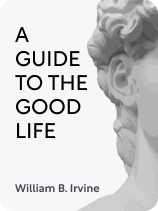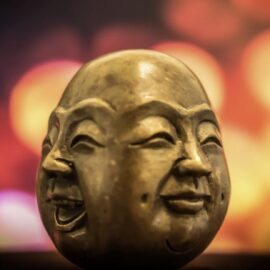

This article is an excerpt from the Shortform book guide to "A Guide to the Good Life" by William B. Irvine. Shortform has the world's best summaries and analyses of books you should be reading.
Like this article? Sign up for a free trial here.
Why is it important to spend time reflecting at the end of each day? How does it contribute to personal growth?
Philosophy professor William B. Irvine outlines six practices you can follow to become a practicing Stoic and build a good life of your own. The last practice is to track your daily progress by reflecting on your day each evening.
Read more to learn about the importance of reflection in the process of becoming a Stoic.
The Importance of Reflection in Becoming a Stoic
After Irvine outlines several Stoic practices you can gradually incorporate, he stresses the importance of reflection, as it’s the way to track your growth in becoming a Stoic. In fact, he makes this the sixth and final practice.
Irvine recommends that you keep track of your growth by analyzing your day-to-day progress and noting ongoing changes in your emotions and behaviors. To do so, Irvine recommends that you take time each night to reflect on the day’s events and evaluate your responses to challenges you faced. Did you let other people upset you? Did you give in to a temptation? Did you successfully let go of your worry about something you couldn’t control?
The answers to questions like these give you immediate feedback about what you’re doing well and where you might improve your efforts. You can also use this reflection to check whether you’re actually using the Stoic techniques you’ve learned. Irvine explains that some techniques—especially negative visualization—are easy to forget about when life is going well, but your nightly reflection can remind you to apply them.
(Shortform note: Irvine describes this practice as a “bedtime meditation,” but it bears little resemblance to the sort of meditation that involves stilling the mind and concentrating on an object such as the breath, a mantra, or an image. What Irvine recommends is more of a focused analytical review of the day’s events through the lens of Stoic principles, values, and practices. In this way, it’s more akin to Buddhist analytical meditation (which involves meditating on Buddhist teachings in order to uncover a deeper understanding of existence) or Christian meditation (which involves contemplating points of scripture in order to develop a deeper relationship with God).)
What Progress Looks Like
In your nightly reflections—and throughout your life—Irvine says that you can evaluate your Stoic progress by looking for certain trends in your emotions and actions. Specifically, Irvine says you’ll experience the following as you strengthen your Stoic skills:
You’ll feel fewer and less intense negative emotions and more joy. Emotions like anger and sadness won’t disturb your calm as much as they used to, and you’ll be less driven by temptation and desire. At the same time, you’ll find yourself delighting in the way your life already is and in the things you already have.
You’ll be less perturbed by others. It’ll be easier to brush off insults, be patient, and avoid frustration.
You’ll take more responsibility for your behavior instead of blaming other people, circumstances, or luck when things go wrong for you.
| Additional Signs of Stoic Progress Fellow Stoicism popularizer Ryan Holiday describes a few other benefits you may notice as you develop your Stoic practice: • You’ll be less distracted and more focused. Because you understand what really matters in life—and that life is temporary—you’ll waste less time on things that only provide momentary enjoyment. • You’ll worry less. Because you focus only on what you control and willingly practice dealing with difficult situations, you’ll have less cause to be anxious about potential problems. • You’ll be kinder and humbler. Because you’re calmer, happier, and less concerned with advancing your own interests, you’ll be more aware of your duty to others and you’ll help them when you can. |

———End of Preview———
Like what you just read? Read the rest of the world's best book summary and analysis of William B. Irvine's "A Guide to the Good Life" at Shortform.
Here's what you'll find in our full A Guide to the Good Life summary:
- A simple step-by-step guide to developing a Stoic practice
- How to be happier, calmer, and more fulfilled in life
- How you can evaluate your Stoic progress daily






